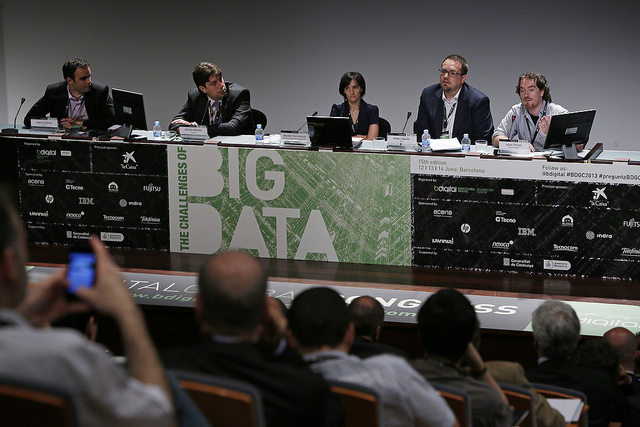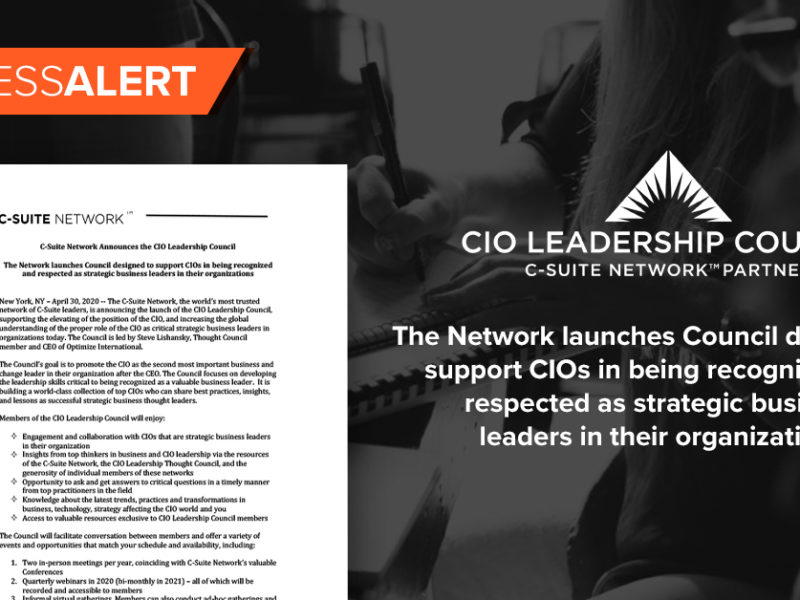
Help Wanted: The Demand for Data Scientists and How to Tap Big Data
Help Wanted: The Demand for Data Scientists and How to Tap Big Data https://csuiteold.c-suitenetwork.com/wp-content/uploads/2015/01/9066795936_5703aea255_z.jpg 640 427 C-Suite Network https://csuiteold.c-suitenetwork.com/wp-content/uploads/2015/01/9066795936_5703aea255_z.jpgby Bobby Koritala

Data Scientist. It’s one of the most in-demand professions in the market, with major organizations clamoring to put one on their staff. Unfortunately, so few of them even exist. That’s according to statistics from the National Center for Education and the Wall Street Journal, both reporting that chief information officers are seriously struggling to fill the coveted role to analyze big data.
McKinsey Global Institute consultant Michael Chui told WSJ reporter Clint Boulton that his study estimates between 140,000 and 180,000 data scientist positions will remain unfilled by 2018. Another Wall Street Journal article states a data scientist can command up to $300,000 annually with little experience.
It’s understandable knowing there aren’t many data scientists to go around. A 2014 study by the National Center for Education Statistics revealed just 1,669 people graduated in 2012 with a PhD in statistics or a related math degree. Of those, only 323 are true statisticians.
And it’s not going to get better, according to Michael Rappa, founding director of the Institute for Advanced Analytics at North Carolina State University, one of the first data science programs in the nation:
“Although about 70 higher-education institutions, including Northwestern University, New York University and Columbia University, are offering comparable analytics programs, [Rappa] estimates that matriculations will only yield 1,000 new data scientists this year — hardly enough to fill businesses requirements at the position.”
It looks like there’s no end in sight. Fortunately, one new trend has CIOs seeing a light at the end of the tunnel. It’s the idea of “No PhD required,” using new technology to put the power of data science in the hands of organizations that may not have one on staff. The idea that anyone can become a data scientist is becoming a reality.
Could the future of data science mean not having a scientist on staff at all?
As data scientists continue to be in short supply, companies must, nevertheless, respond to growing amounts of data – from customer information to operational data and everything in between. Future competitive advantage relies on a strong knowledge of business data and, even more importantly, the ability to make decisions based upon it.
In the absence of a full bench of data scientists, primed to take on any and all input laid in front of them, companies are seeking out expertise — outsourcing certain analyst functions to a trusted source, as well as deploying business intelligence programs that make sense of data without rigorous application of statistical analysis by the user. The dearth in data scientist talent requires sophisticated solutions that are easy to use, empowering staff with limited analytical knowledge to assess business scenarios equipped with the data available to them.
Fortunately, nimble technology can support companies with their vision to be data-driven — no PhD required.
 Bobby Koritala, Chief Product Officer at Infogix, joined the company in 2009 and leads the Marketing, Product Management and Development Group. Prior to this, Bobby served as the Director of Risk Technology Solutions at Protiviti, COO of Spark Biotech, Vice-President of Investments at Open Prairie Ventures, Director of Applied Technology at Blue Cross Blue Shield, Director of Product Development at Lexis Nexis, and Senior Manager, Software Development at SPSS. Bobby has a Bachelor of Arts degree in Computer Science and Physics from Coe College, a Master of Science degree in Computer Science from the University of Wisconsin, and an MBA from the Kellogg School of Management, Northwestern University.
Bobby Koritala, Chief Product Officer at Infogix, joined the company in 2009 and leads the Marketing, Product Management and Development Group. Prior to this, Bobby served as the Director of Risk Technology Solutions at Protiviti, COO of Spark Biotech, Vice-President of Investments at Open Prairie Ventures, Director of Applied Technology at Blue Cross Blue Shield, Director of Product Development at Lexis Nexis, and Senior Manager, Software Development at SPSS. Bobby has a Bachelor of Arts degree in Computer Science and Physics from Coe College, a Master of Science degree in Computer Science from the University of Wisconsin, and an MBA from the Kellogg School of Management, Northwestern University.




